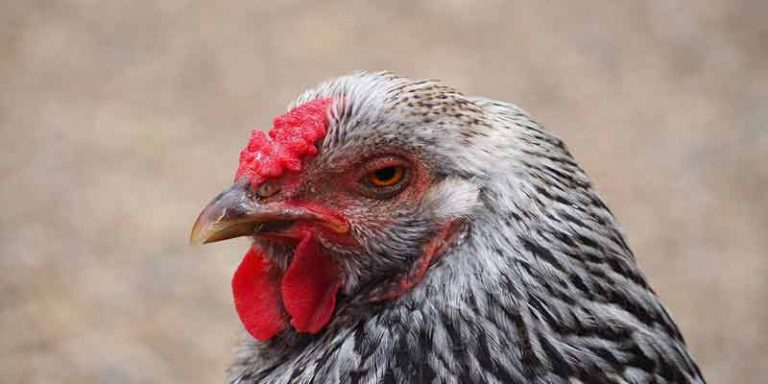Chickens are often viewed as an animal that is sentient and emotional, but little is known about whether or not they cry. The answer to this question has caught the attention of scientists for decades. Though many believe that chickens don’t cry because their lungs are too small for their vocal cords, researchers now believe that chickens might indeed produce tears.
Their findings show that chicken tears contain a type of protein called trypsin inhibitor, which is found in human tears. In addition to being shed by humans and other mammals, infant chickens also release tears when they feel fear or pain.
This article will discuss how whether or not chickens cry and what it says about these birds’ emotions.
Do Chickens Cry?
Many people believe that chickens don’t cry because their lungs are too small for their vocal cords. However, this theory is not true. Chickens do have vocal cords, just smaller than other birds.
When they produce sounds, they use the unique anatomy of their facial muscles to make a clicking noise rather than speaking from the throat as humans do.
Another reason some people think chickens don’t cry is that they lack tear glands like humans.
In addition to being shed by humans and other mammals, chick tears contain a type of protein called trypsin inhibitor. This protein is found in human tears too.
In conclusion, it is believed that chickens might indeed cry because of the presence of trypsin inhibitor in their eyes’ tear fluid, but more research must be done to determine if this is accurate or not. We still don’t know whether or not chickens can feel fear and pain on par with humans or if they even have emotions as we do.
The Structure Of A Chicken’s Eye
One of the reasons scientists have been unable to determine whether or not chickens cry is because the structure of their eyes differs from the way humans view tears. Chickens have more fluid-filled chambers that make up their eyes, which is why they can see better in low light conditions than other animals.
Additionally, chickens’ eyes are located on the sides of their heads and are tucked away deeply behind feathers. This makes it difficult to see what a chicken is seeing because researchers can only study their tears when they are taken out of the bird.
In order to properly study whether or not chickens cry, researchers need to actually take one apart to capture its tears in a petri dish. They will then analyze them for protein content such as trypsin inhibitors, which were found in a study by Dr. Michael Mendl and his team at Oxford University in 2010.
Where Do Tears Come From In Chickens?
Though it is believed that chickens don’t cry, scientists have found that they produce tears. These tears contain a type of protein called trypsin inhibitor, which is found in human tears.
In addition to being shed by humans and other mammals, infant chickens also release tears when they feel fear or pain.
What Are The Benefits Of Tears In Chickens?
Many chickens are viewed as intelligent and emotional animals, but little is known about the benefits of tears in these birds.
Earlier research has shown that chickens produce tears when they feel pain or fear. Scientists have found out that the protein that is found in chicken tears is called trypsin inhibitor, which is also found in human tears. This means that chicken tears could be beneficial for humans too.
Are There Tear Ducts in Chickens?
One of the first questions that researchers wanted to answer is whether or not chickens have tear ducts. The answer is yes, but it’s been a bit of a mystery as to where these ducts are located in the body. In 2006, scientists took CT scans that revealed which areas were denser than others. The denser areas were also found to be closer to the eyes.
With this discovery, it became easier for scientists to identify where the ducts are located in chickens. These ducts are found close to the eyes and run down their facial region on both sides of their beak.
Scientists have also discovered that chicken tears contain a type of protein called trypsin inhibitor. This protein is found in human tears as well and helps provide protection against infection by forming a barrier between foreign substances and cells on the surface of your body.
The presence of trypsin inhibitors in chicken tears suggests that they also serve an emotional function similar to humans, though this idea has received mixed reviews from other scientists as well.
Conclusion
There are many different opinions on whether chickens can cry or not. Some think that they do cry, and others think they do not. The answer is that they cry if they want to and they don’t cry if they don’t want to. So the answer is yes and no.
Regardless, chickens do have emotions and a lot of them are just as complex as our own. What a great thing to know about our feathered friends!


